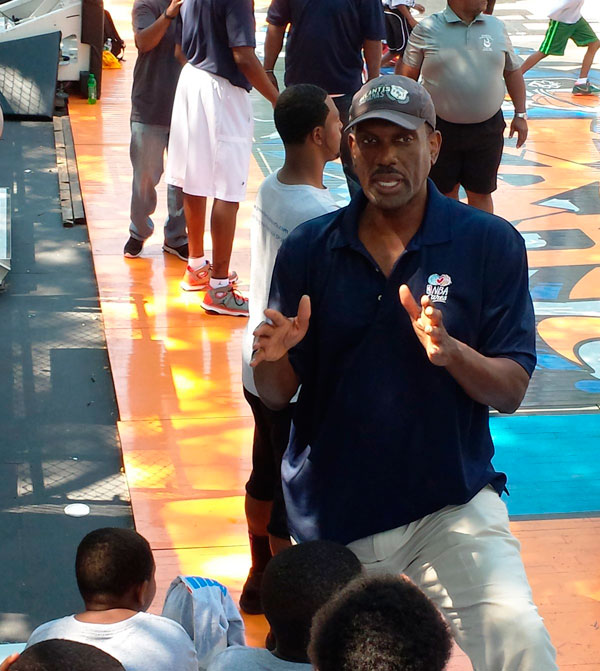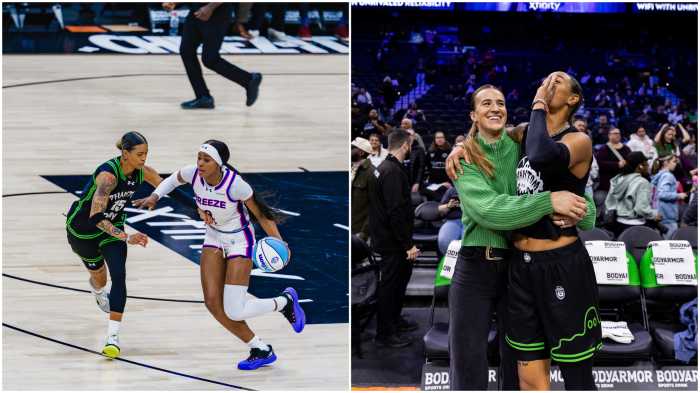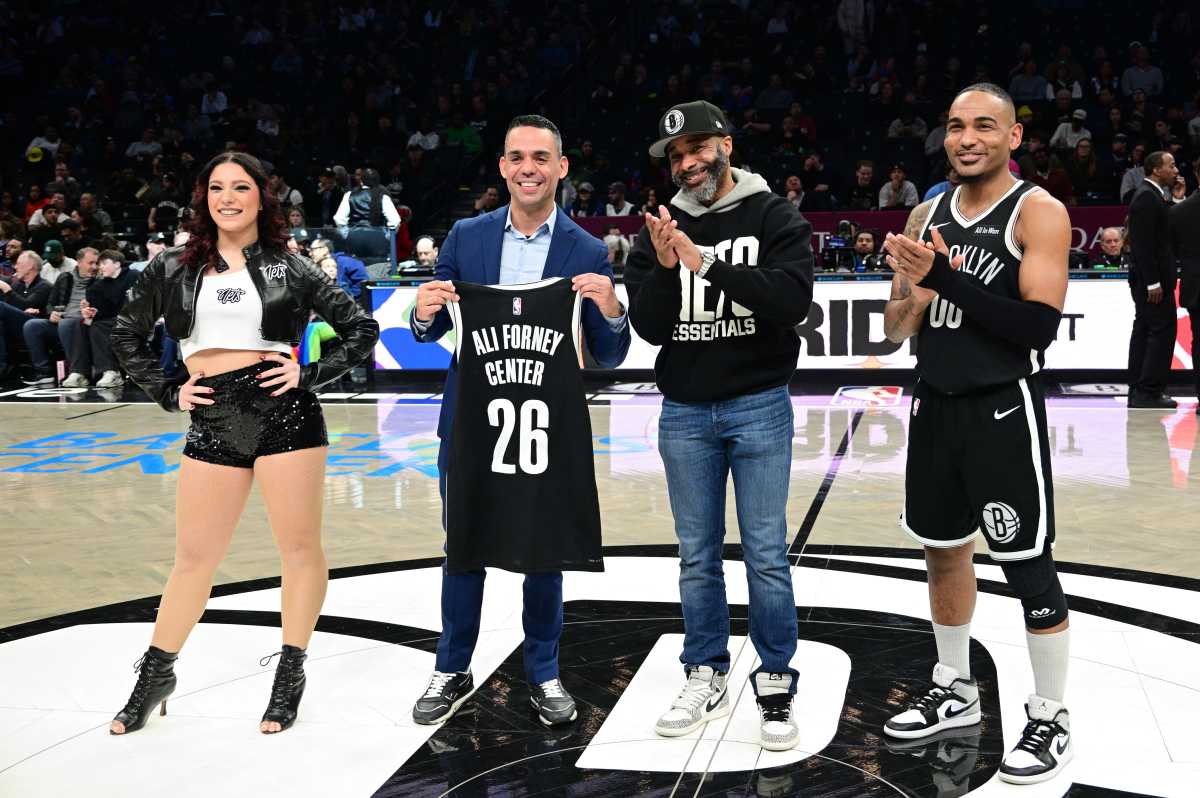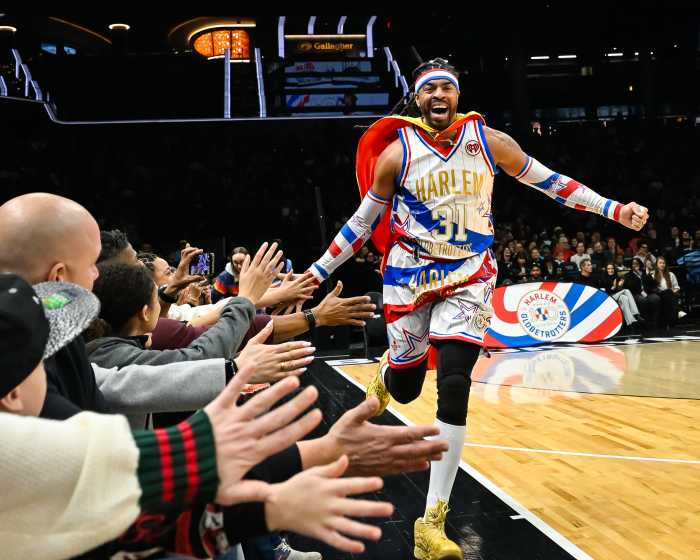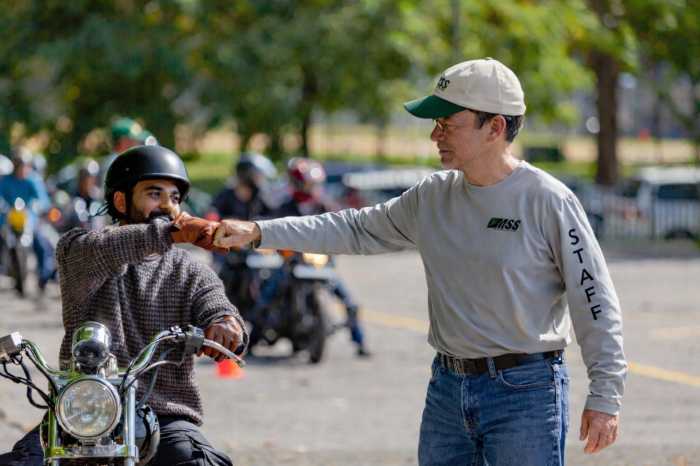Former Net Albert King stood on the bleachers at the famed Rucker Park in late August looking to make a connection with a group of kids who knew nothing of his legendary basketball career that had its roots on the playgrounds of Fort Greene.
As he engaged the eager players who had hoop dreams of their own, he realized that he could quickly build a bond with them through sharing the success he had off the court after he retired from the game.
“You could see the young people, they really want to learn, not just about basketball, but life itself,” King remarked shortly after addressing the attendees of the NBA Cares clinic. “Whenever you have the opportunity to come back and be supportive, that’s what I’m about. I always like to do that.”
King spent nine seasons in the NBA, primarily with the New Jersey Nets — a career that was spawned by prep superstardom. King was rated as the top high school player in the nation during his senior year at Fort Hamilton High School, ranking above the likes of Hall of Famer Magic Johnson. He took his talents to the University of Maryland, where he graced the cover of Sports Illustrated twice in one season en route to earning ACC Player of the Year honors in 1980. Having former Knicks star and brother Bernard King come before him only made the spotlight brighter.
The intense coverage of his young basketball career was tough for him to deal with, but it is an experience he now reflects upon fondly.
“Being a young kid, quiet, and shy, growing up in New York City, it was difficult with the media attention,” King said. “It was hard to handle sometimes, especially from a national perspective, but I look back now with a lot of good memories.”
While he didn’t live up to the potential Hall of Fame career that was predicted for him coming out of Fort Hamilton, King later made his mark as a successful owner of multiple Wendy’s franchises. He’s used the same team-centric mentality that he developed as a basketball player to manage his employees.
“It was a team sport and in the restaurant business, you have the coach, the managers, and the crew; you have that same dynamic and it was something that I enjoyed,” King said.
He encouraged the kids at Rucker Park to take heed of how he developed his business career after his playing days were over. By having a plan for his life after basketball, he avoided the financial distress that more than 50 percent of players experience once they retire.
“You think if you could make it to the NBA, my life is over after that,” King said. “When you’re an old man you understand that it only takes up a fraction, not even a quarter of your life when you are playing through the years. There’s a lot left. There’s a lot of time left, there’s a lot of good you could do.”


